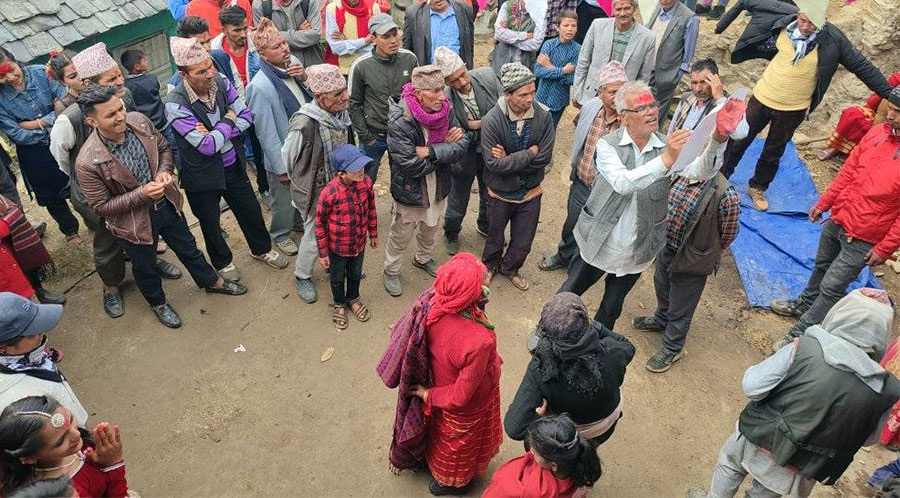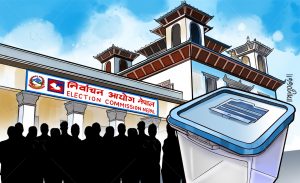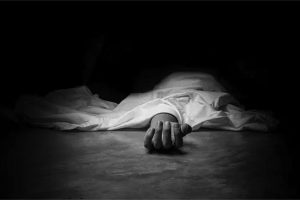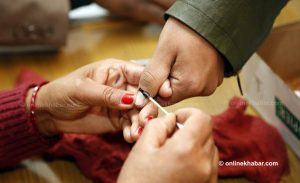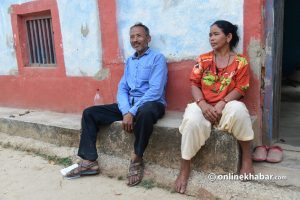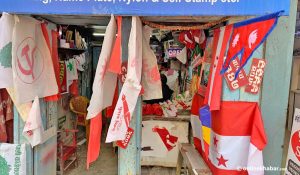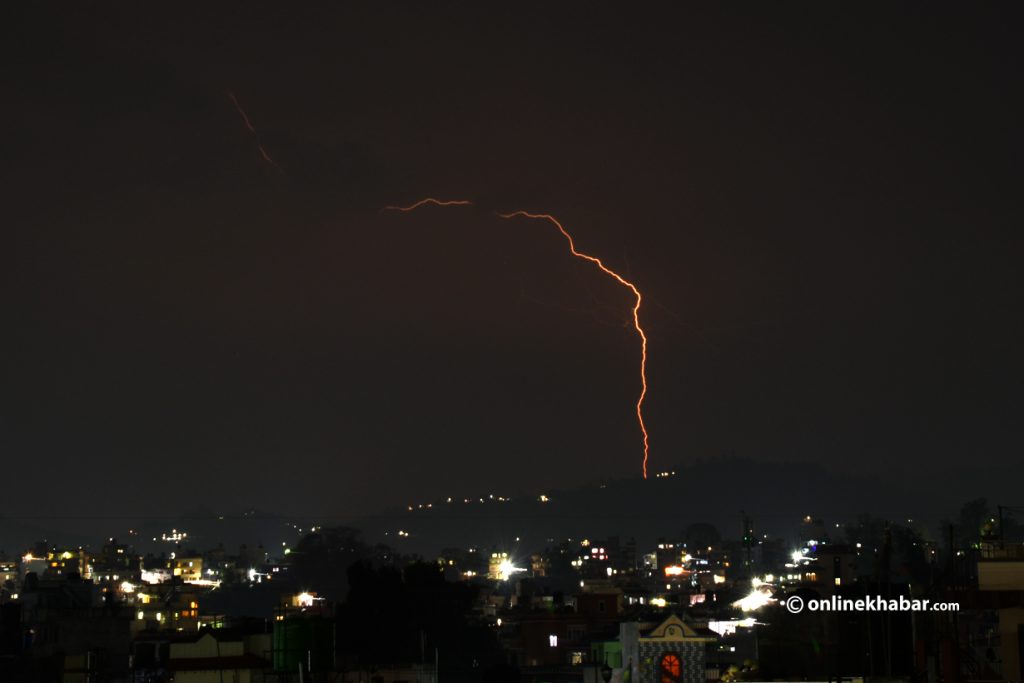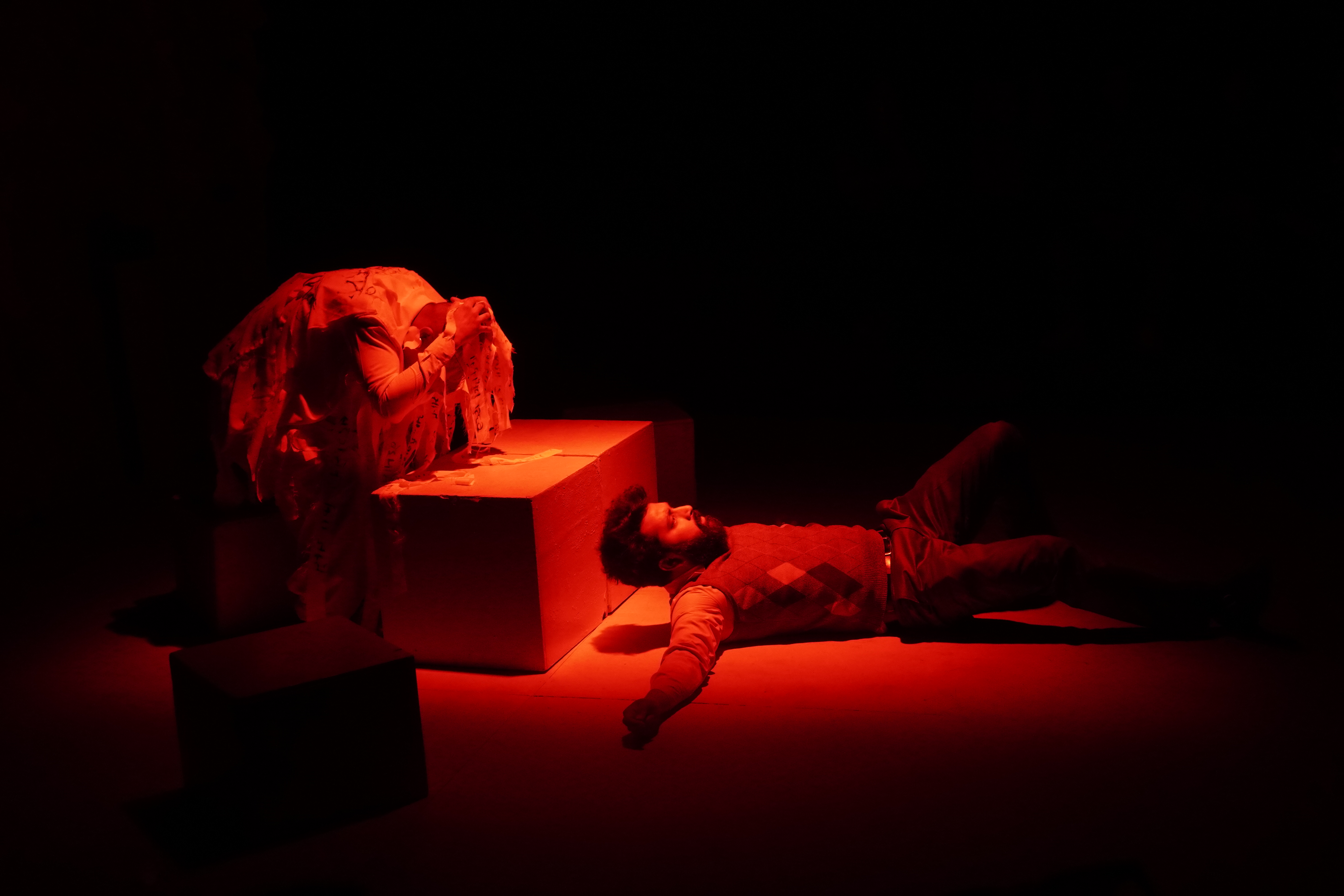On March 29, 2008, a bomb explosion at a mosque in Biratnagar killed two and injured several. The responsibility for the explosion was taken by a group called Nepal Defence Army. Why did they do it? To create havoc in the country before the 2008 constituent assembly elections.
Likewise, on March 31 of the same year, a pressure cooker bomb exploded at the Nepali Congress’ Sunsari office. On April 2, three people were injured when a bomb was thrown at a passenger bus in Siraha. The same week, candidates from smaller parties in Nepal were kidnapped. This terrified people so much that many decided to stay home until the elections were over.
Incidents like this were common in Nepal when elections were around the corner. Peaceful elections were unimaginable. Clashes between rebel groups and the state, explosions, firing and protests were an everyday affair during the 2008 and 2013 elections. Armed rebel groups even went to the polling stations, bearing arms, scaring the general public and threatening them saying they would kill them if they voted.
While that was the case before, there are peaceful elections now. On the eve of the elections, there is peace in the country as people can utilise their right to vote.
A paradigm shift

Central police spokesperson SSP Bishnu Kumar KC says a lot of incidents would take place in the country prior to the silence period, questioning the idea of peaceful elections. He says people would put up bombs around various areas, demolish vehicles of politicians and set fire to things.
“But, things are normal now, which is great. In the past, cadres of major political parties would clash together, creating problems. But, this year, things are quiet. I’m confident that this election is going to be the most peaceful election in years,” says KC.
Former DIG Hemanta Malla Thakuri thinks things are better right now because there is a coalition between major parties.
“Political parties are cooperating with each other everywhere. That has obviously helped keep things calm and make peaceful elections happen,” adds Thakuri.
Thakuri feels social media has also helped people as they cannot go and misbehave as they please. As things can be recorded on the phone and put up on social media, there is a risk of the party being defamed before the election.
“In the past, incidents were limited to a place. But, now, if anything happens in Dang, people in Kathmandu or Jhapa will also know about it. And, that has made people alert,” he says.
Peaceful elections this time

The National Investigation Department (NID) in its report presented to Home Minister Bal Krishna Khand stated that it felt the most threat from Netra Bikram Chand ‘Biplav’ and the people who left his party for the peaceful elections this time. Along with that, the department also singled out former Maoist leader Mohan Baidya and his party, Jaya Krishna Goit and his party, the Terai Mukti Morcha and Nepali Shiva Sena. But, the NID does state there is nothing to worry about today as they are not as active as before.
Political analyst Bishnu Dahal says things were not the same before. But, he says that elections in 2008, 2013 and 2017 helped shape things for the current scenario of peaceful elections.
“People saw how much power they had. They helped draft the constitution and determined what was right and wrong for them. We had to go through some dark times, but there is light at the end of the tunnel,” says Dahal.
And, he is right. No one has opposed the forthcoming local elections so far. Political parties have also not publicly opposed the elections. Prior to this, these were a common affair.
“When we had the elections in 2008, the rebels who fought the war joined political parties. They didn’t understand how things were done in peaceful elections and people in power didn’t know how to handle them,” says Dahal.
“In 2013, these incidents were less, but still, these rebels did not create a favourable environment for an election. But, now, I think people understand the need for a peaceful election and everyone seems to be on board.”
“Prior to the 2013 elections, we had different groups that wanted to obstruct the elections,” says former IGP Kuber Singh Rana.
The Home Ministry says that during these years, the risk they faced was trying to curb threats by rebel groups bearing arms. In the 2008 elections, the Maoists went to the polling stations with arms. The ministry says there were over 100 armed groups in the country.
Raut, Biplav factors

But, in 2017, the number of armed groups that were opposing the elections was down to 50. These included groups led by Netra Bikram Chand and CK Raut who had decided not to take part in the elections and staged protests across the country. But both the parties are contesting the local elections this year. For this year, the Home Ministry’s main concern about peaceful elections is the unhealthy competition between candidates. The ministry says it has prepared a special strategy to deal with this issue.
In the past, districts in Terai also posed problems for the government as various rebel groups demanded equal rights in the constitution in terms of citizenship. They exploited bombs and planned to obstruct the elections. With most of them also now in mainstream politics, things are calm. CK Raut, one of the main instigators getting into the mainstream, has helped a lot, claim experts.
Looking at things now, veteran politician Binaya Dwaj Chand is happy as he sees a change in people’s mindsets.
“People have become aware and that plays a huge part in having a peaceful election. Because the environment is peaceful, candidates are also not feeling the pressure they once used to feel,” says Chand. “This was what we had envisioned five decades ago. I’m glad that things have changed.”
Thanks to people’s general awareness, even though there was a lot going on in the world in terms of governance, Nepal for the most part was stuck with a feudalistic mindset that stopped the country from developing.
“This is proof that dictators and violence have no place in today’s world,” adds Chand.
There was even a time when political parties gained followers for boycotting the elections. But, those times are long gone, argues political commentator Surendra Labh.
“Since this no longer works, political parties are starting to involve themselves in this democratic practice of peaceful elections,” says Labh.
Journalist Chandra Kishore says there is peace because everything is now done through social media.
“Altercations happen when people meet in person. But, in today’s age, everything is done online,” he says. “The campaigning is all digital and even arguments are digital.”
This story was translated from the original Nepali version and edited for clarity and length.



